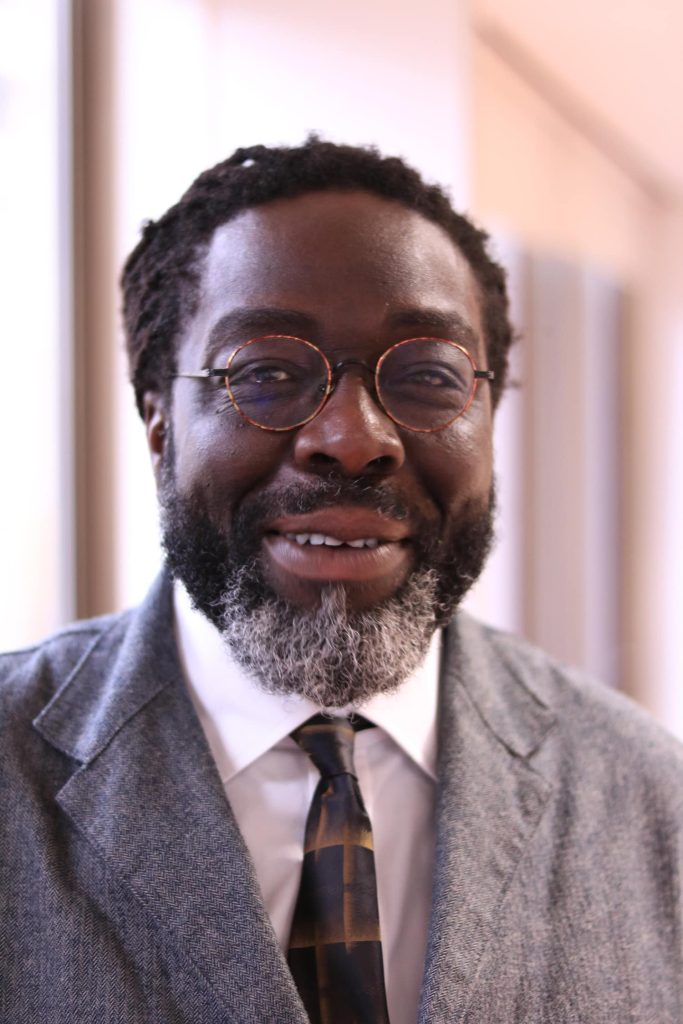Curing the NHS with Lord Adebowale CBE
 On Tuesday 3 October, an eager group of Sixth Form students with aspirations in the field of Medicine attended the Annual Worcester Lecture in Worcester Cathedral. This year’s lecture had the thought-provoking title: ‘The NHS is Sick! What’s the Cure?’ with an address delivered by Lord Victor Adebowale CBE.
On Tuesday 3 October, an eager group of Sixth Form students with aspirations in the field of Medicine attended the Annual Worcester Lecture in Worcester Cathedral. This year’s lecture had the thought-provoking title: ‘The NHS is Sick! What’s the Cure?’ with an address delivered by Lord Victor Adebowale CBE.
Lord Victor Adebowale is a prominent figure in the healthcare sector, serving as the Chair of the NHS Confederation—a vital organisation that unites, supports, and advocates for the entire healthcare system in England, Wales, and Northern Ireland. Before taking on this role, he held the position of Chief Executive at Turning Point, a noteworthy social enterprise. Additionally, Lord Adebowale is a Non-Executive Director for several influential organisations, including the Co-operative Group, Collaborate CIC, Nuffield Health, Visionable, and Leadership in Mind. Lord Adebowale was awarded a CBE for his services to the unemployed and homeless and became a crossbench peer in 2001.
The lecturer’s title alone, ‘The NHS is Sick! What’s the Cure?’ ignited a spark of curiosity among the attending students. Founded shortly after World War II, the National Health Service (NHS) is revered and cherished by many for its accessibility and free healthcare services. It was celebrated during the 2012 London Olympics and received applause during the Covid-19 Pandemic. The NHS is a source of immense national pride.
However, as the tax burden approaches its highest sustained level since the NHS’s inception, the British people are feeling the strain of paying more for healthcare while experiencing increasing difficulties in accessing services promptly. A staggering 2.5 million people are currently unemployed due to health-related issues, and there is a severe shortage of NHS staff. Unfortunately, the long-term workforce plan is not set to begin until 2025. When compared to its affluent counterparts, Britain is now falling short on basic health measures.
During his compelling address, Lord Victor Adebowale CBE confronted these pressing questions and emphasised the need for a radical shift in focus. He highlighted three key pillars: access, equity, and digitalisation, asserting that getting these aspects right would pave the way for a transformed NHS. What shone through in his speech was his unwavering pride in the NHS and his firm belief that it could be fixed and continue to serve the nation for many more years to come.
For the RGS Sixth Form students in attendance, this lecture proved to be a remarkable and enlightening experience. They left with much to ponder, having gained valuable insights into the challenges and potential solutions facing the NHS — a critical institution in their chosen field of Medicine.
At RGS, nurturing aspiring medics is an important priority. It is crucial for students looking to pursue careers in healthcare to gain a comprehensive understanding of what the profession entails. Encouraging them to explore various aspects of healthcare allows them to demonstrate their passion and commitment. Events like the Annual Worcester Lecture provide our students with opportunities to enrich their knowledge and contribute to their personal and professional growth.



